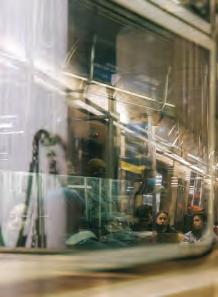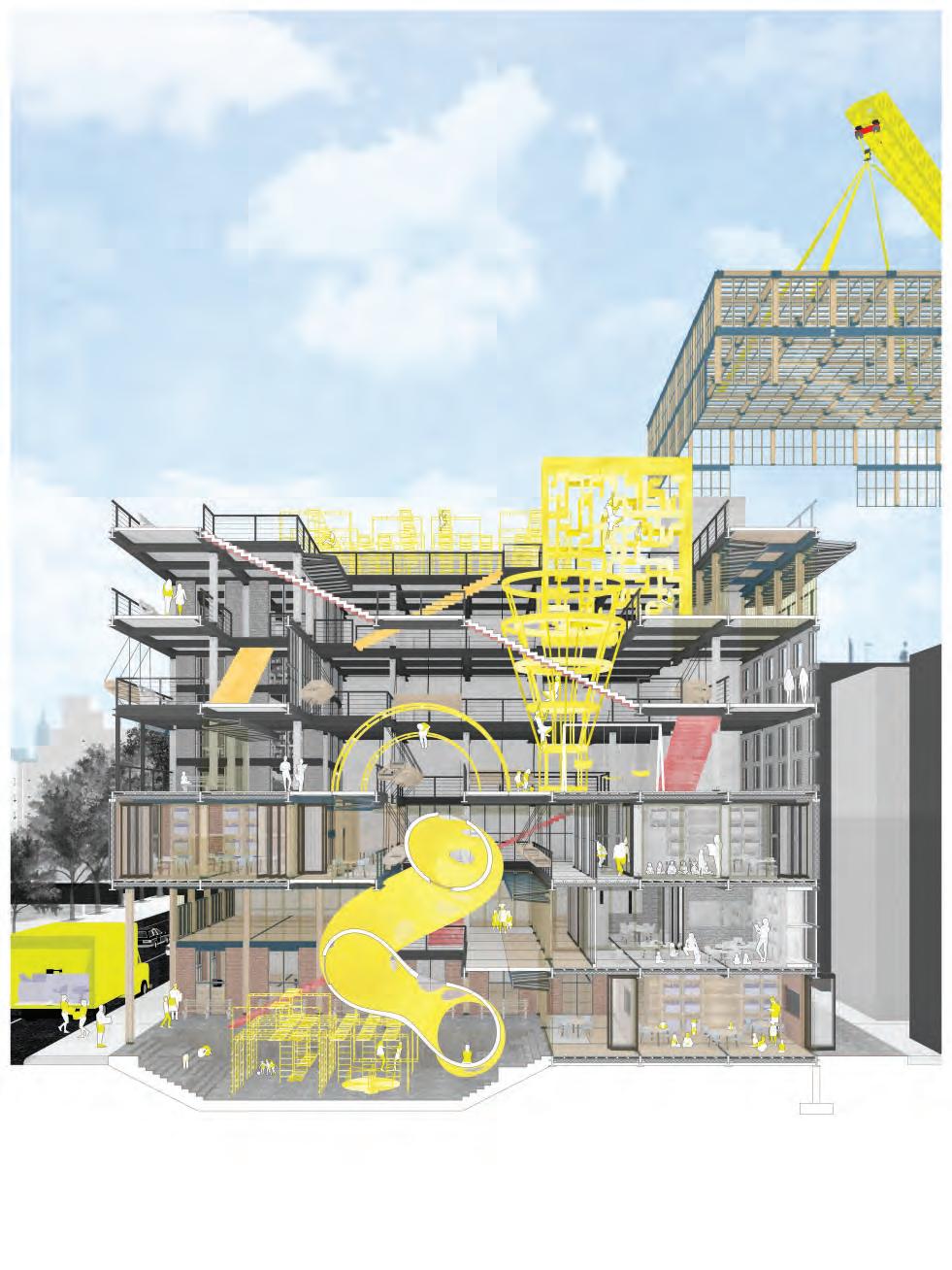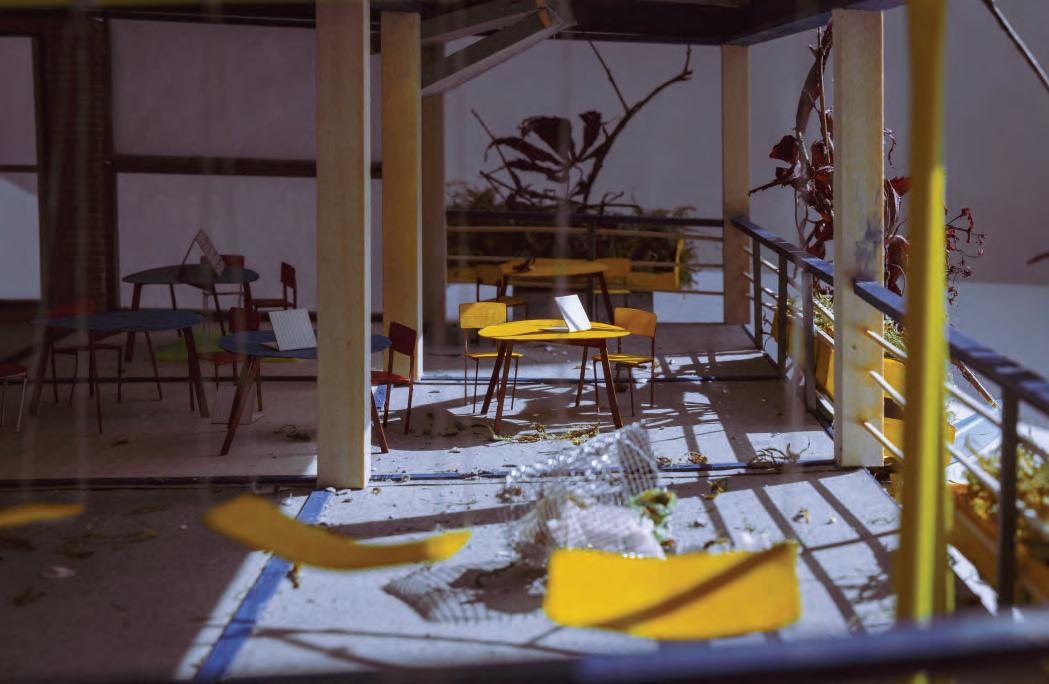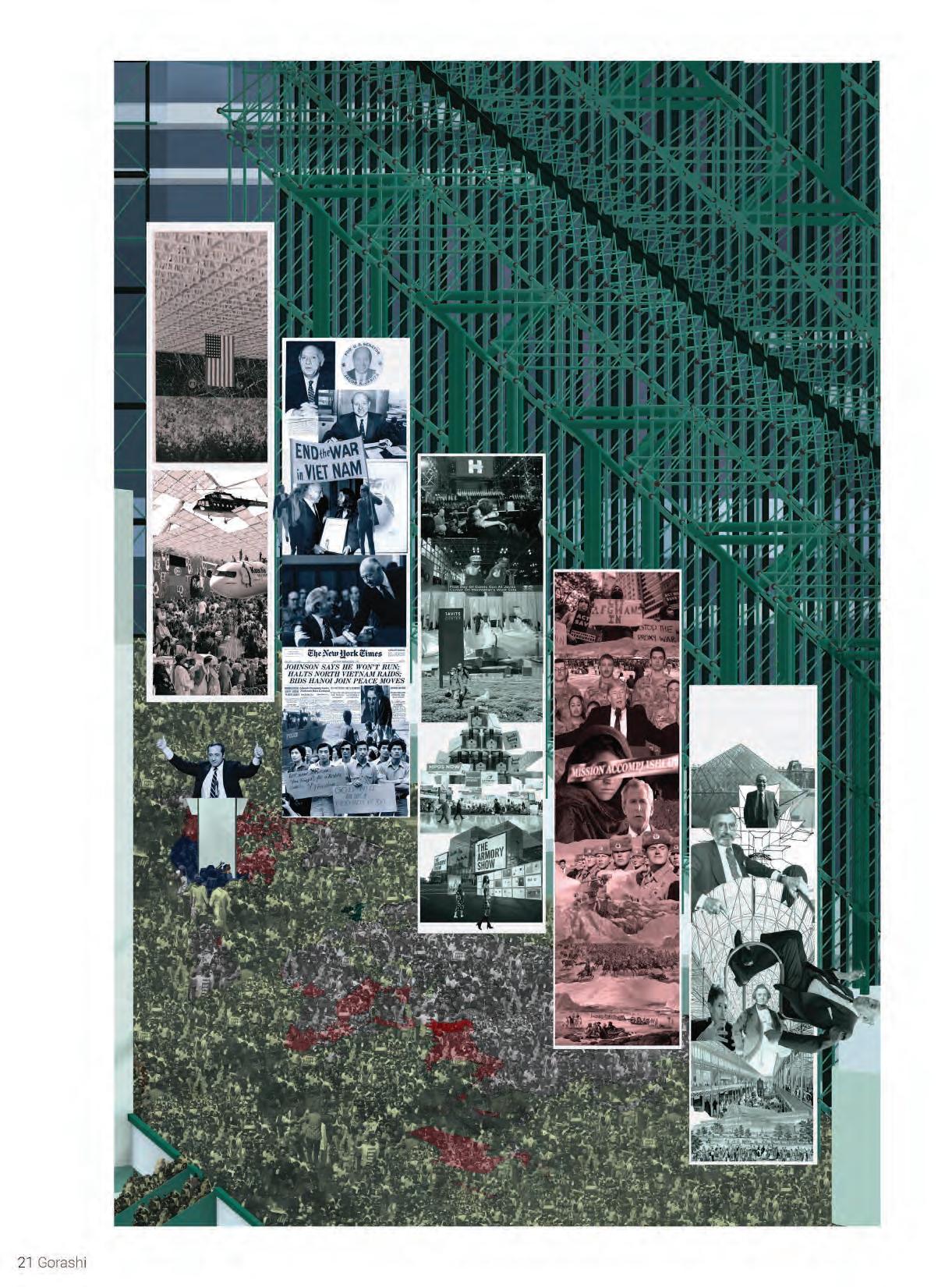

COLLISIONS










PERSONAL WORK SHOT ON CANON R


You will come to learn that I love to think, design and communicate through palimpsest.








 Gorashi
Gorashi
YEMENI RUIN ACROSS MEASURES
CORE 2 | SPRING 2022
PROF LORENZO VILLAGGIThe following drawings attempt to blend cartography into collage in order to bridge the gap between aerial representation and interpretation in the context of early drone warfare in Yemen and their ground-level perspectives on the capital city Sana’a. At three cartographic scales, one begins to understand the relationship between the global economics of arms and the hyper-local consequences.Cartography being reinterpreted as a palimpsestic affords new opportunities to shift scale and perspective, as individual and whole constantly oscillate within the map. reality take it
Map/Country City/Drone Streetscape/Eye level

HOME IS WHERE THE GARDEN IS
CORE 3 | FALL 2023 IN COLLAB WITH LAUREN BROWN ERICA GOETZ
`On a site with a history of exploitation of people, nature, and home at the benefit of industry and the cost of human health, HOME IS WHERE THE GARDEN IS proposes a form of communal living centered around year-round greenhouse-gardening in order to rejuvenate the health and being of the people and site.
Designed to maximize the efficiency of a greenhouse to solar and wind orientations, the structural and organizational grid for the project is rotated 45 degrees SE to enable each greenhouse core to maximize the morning sun to passively heat the greenhouse.
On the four residential levels, most public spheres of the units–their living and dining rooms–are offset into the greenhouses’ lower levels to allow for residents to communally dine, gather, and even grow their own private plantings.
The uppermost two stories of the project are the functioning greenhouses that not only supplement the nutritional and cultural needs in response to Melrose’s and Mott Haven’s food desert state, but also provide conditions for passive systems that heat, cool and filter the air for residents.










PLAYTRIUM
The following school proposes to conditionally invite the public to engage with its students within a vertical prefab panel and CLT structure to create healthier relationships between the community and institution while questioning ideas of accessibility and informal affordance within public space.

A 3-Dimensional Public Core is established within the atrium through a series of hard and soft thresholds between the school hallway and public corridor to establish adjacencies between public school and public space that open and close depending on the time of the day and year, activity, and audience. Students can observe and be observed while learning, playing, and engaging with public space. The classroom unit’s spatial intimacy and frequency of use dictate the degree to which it is open to the public. Individual classrooms are given privacy but adjacent spaces offer public access beyond school hours, while areas such as the gym library and community cafeteria remain open. The Program (X) of the Playtrium is imagined as a vertical park that circulates the nonuniform atrium to allow as many opportunities for controlled engagement with the school.
The public will also have access to a roof play/ ground and garden that seeps into the floors below to add another layer of private and public discourse.



















































































































































































FIELDS OF FIELDS
CORE I | FALL 20211


PROF THOMAS DE MONCHAUX

The thread this imagined reality intertwone the Jacob Javits Center and the “end” of America’s occupation of Afghanistan began with fields. The infinite of central rug motifs, the infinite of the Miesian spaceframe, overlaid. The spectatorship of “the other” through early world fairs, the Crystal Palace being the first convention center.
With the end of America’s occupation of Afghanistan, rather the occupation the begin with, the world witnessed a new Afghani diaspora. As refugees arrive at the Jacob Javits Center in this proposal, the project interrogates, ideas of spectatorship through conventions, refugee cities, and the overlooked parralels between the two.





THE BLOCK (2020)
ARCH 4010 | FALL 2020
PROF ELGIN CLECKLEY
The Block (2020) is an active retelling of African American history, in which the spatialized and immersive reconstruction of Romare Bearden’s “The Block” (1971) assembles experiences from various American cities transcending time within a single Harlem Block composition. Visitors play the roles of spectators, subjects within collaged spaces of Isabelle Wilkerson’s “The Wamth of Other Suns”, and even the artist themselves, empathizing with the daily life experiences and emotions of individual times places and people of the Great Migration while unveiling and celebrating the shared realities throughout.



AL-IHTISHAD MADANI
NOTE: Although the following work is from my undergraduate thesis, much of project fell apart towards the end of the semester, due to unforseen family circumstances.
“Sudan - the name derives from the Arabic Bilad as-Sudan “the lands of the Black [people]”. It refers to the land where the two Niles meet and 74 languages are spoken; where the queens of the Nubian civilization dating from around 2,000 BC ruled their matriarchies, beating back the Romans and building around 255 pyramids - double the number of pyramids in today’s Egypt. Thousands of years of trade and Hajj pilgrimage routes diversified the people, their cultures, and traditions. It is the country that fought against Turkish, Egyptian, and British colonizers, a country with impressive churches and mosques alike - a country famous for having had three revolutions in the past 62 years. Malcolm X visited Sudan in 1959, followed by other influential people such as Louis Armstrong, Harry Belafonte, Jimmy Cliff, and Miriam Makeba. Nowadays most people outside the country’s borders are unaware of Sudan’s rich past, multifarious present, and kaleidoscope of people. International media outlets mainly talk about the wars, famines, and political crises there, painting an incomplete picture of the country which was the largest on the continent before it split in half just a few years ago.fill a gap and add pieces to the puzzle of Sudan’s image outside its borders.”
- Khalid Wad Albaih & Larissa-Diana Fuhrmann, Sudan Retold






SO-N/L-AR RADIATION

ARCH 5500 | FALL 2020
PROF MATTHEW JULL
As one begins to understand these micro-environments created by elements of the built environment interacting with the natural world, clear delineations between the seen and invisible and the constant and ephemeral begin to dissolve and blur, sometimes turning our worlds upside down. Yet how does one begin to communicate and represent what we can’t directly see, hear, feel, taste and/or smell, and more importantly how it then begins to interact with what is within the human sensory range. With the use of environmental sensing apparatus and digital visualization tools, these are early attempts at understanding how the Sun’s radiation interacts with a simple structure just by the foot of the Blue Ridge Mountain.


PHOTOGRAPHY
PERSONAL WORK SHOT ON CANON 5D MII & MINOLTA MAXXUM 7000
Photography began as a method of collecting visual references for predecents and research. However, with every shutter click it grew into my medium for spatial discovery and perspective. Every frame became a new reality of its own. Through light, presence and absence, I muse on relationships between architecture, people. From the scale of an individual to the scale of the city, I bear witness to and capture what is momentous within the mundane, the extraordinary within the banalities of daily life.

An archive of my work can be found online via Instagram (@go.rashi)






